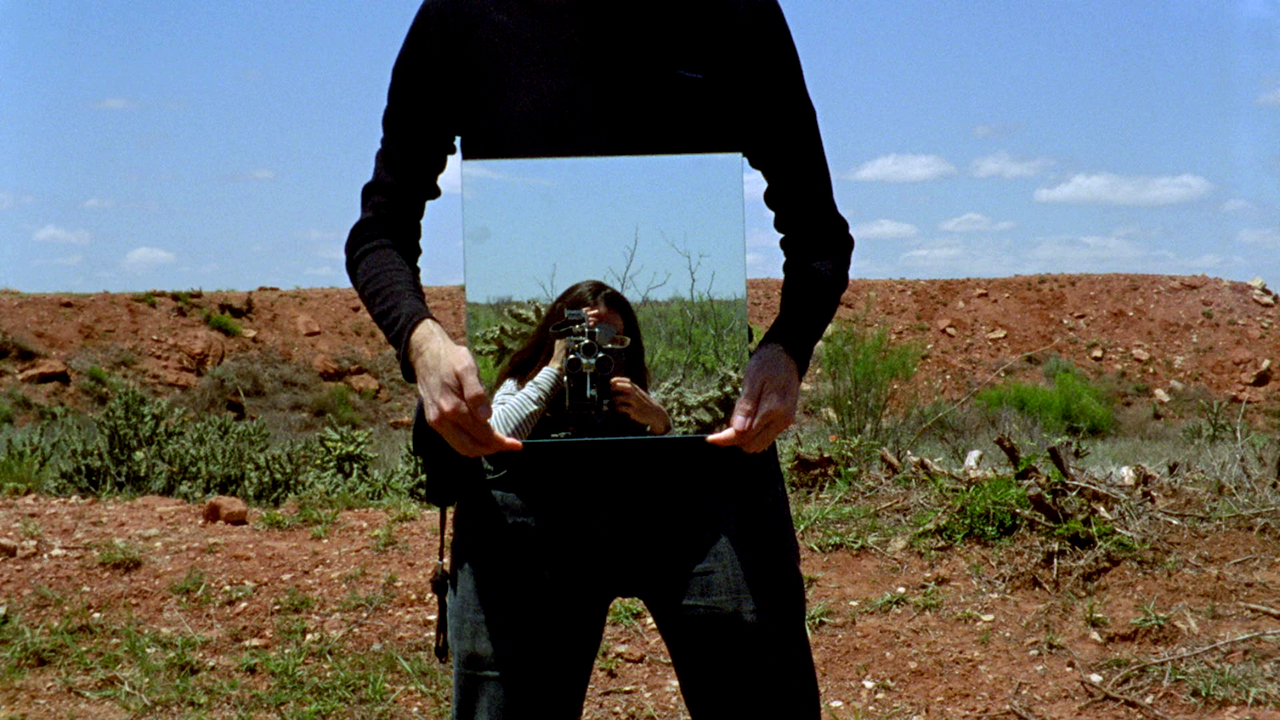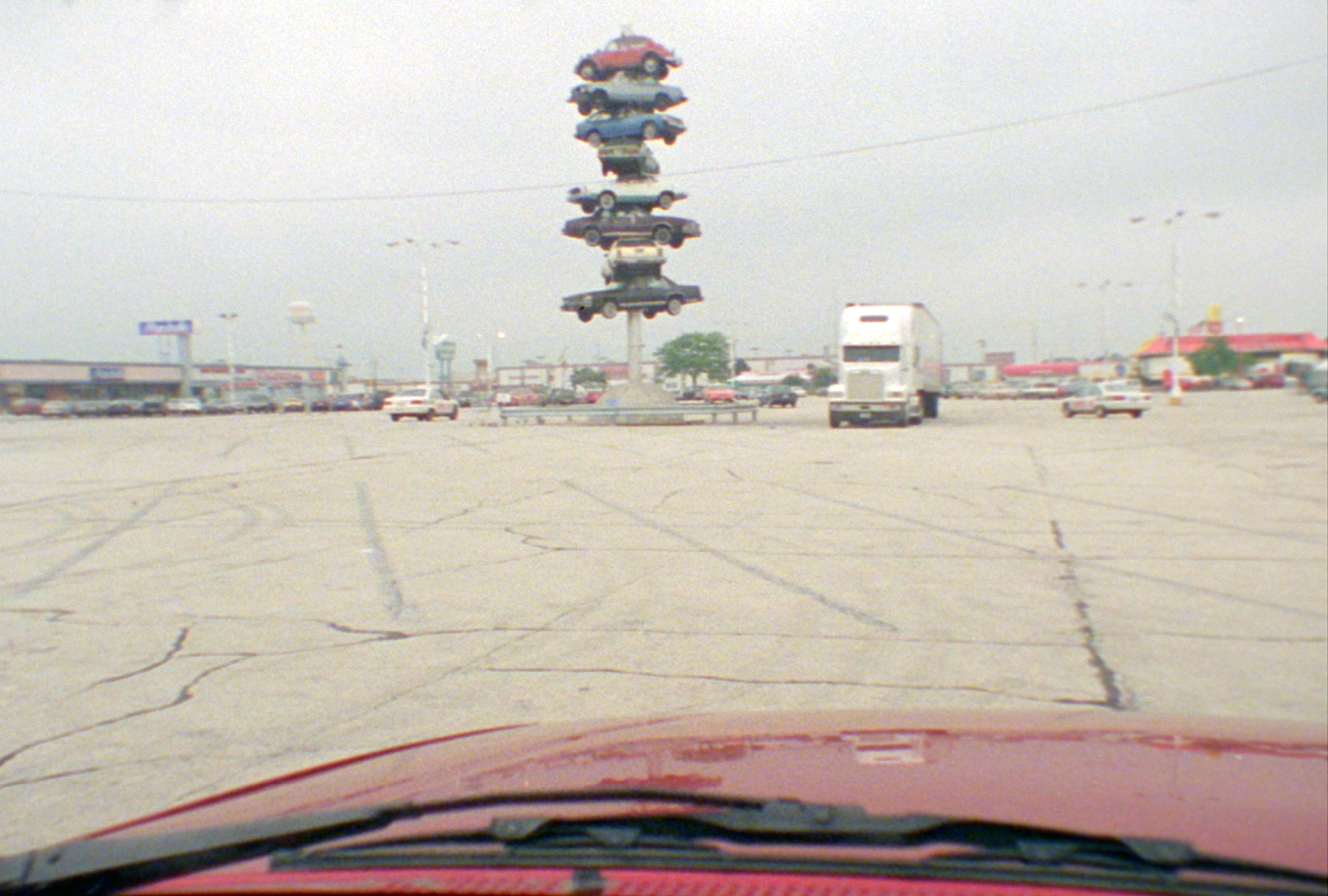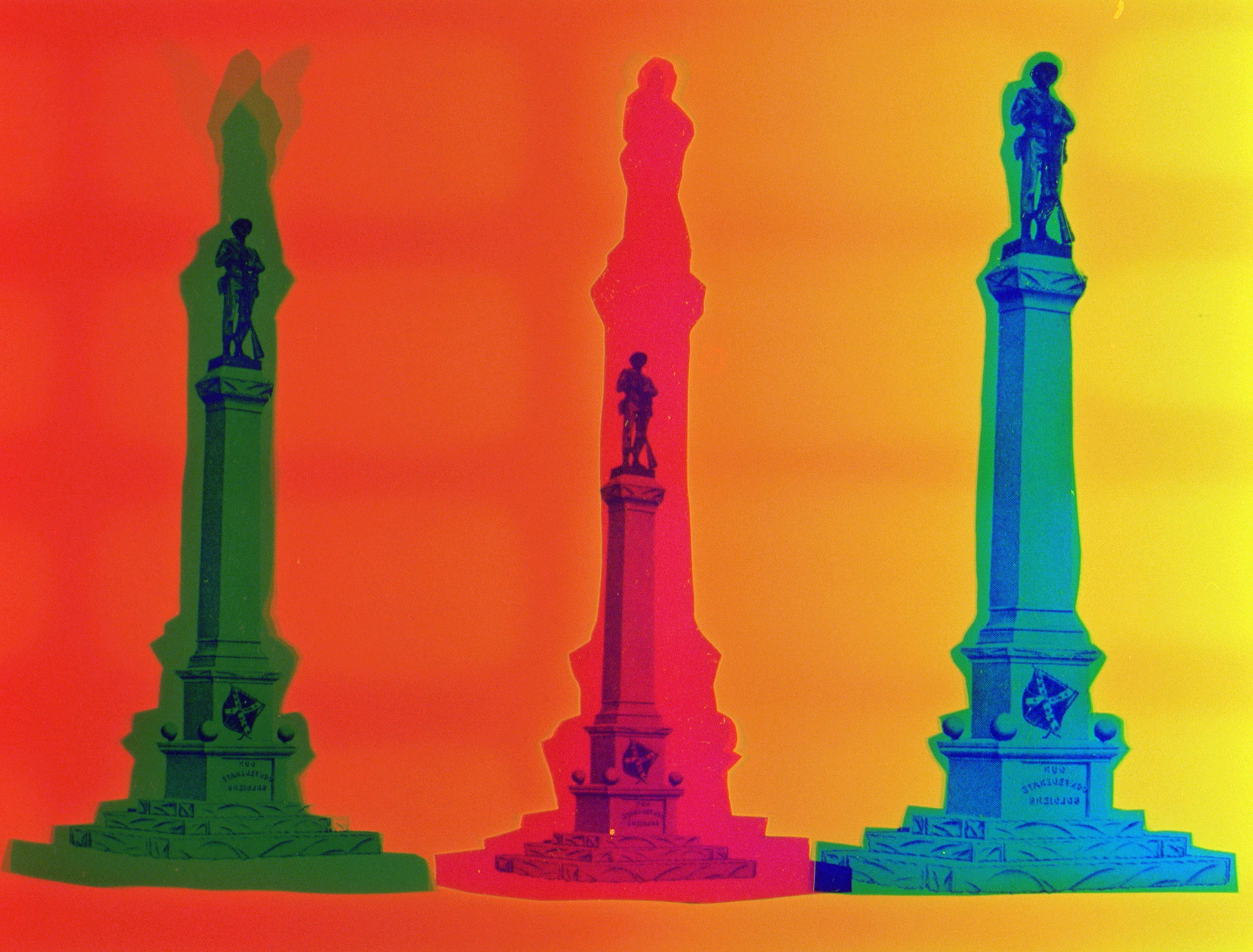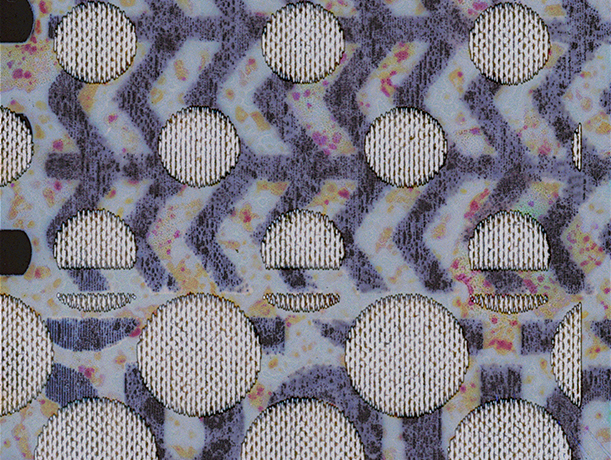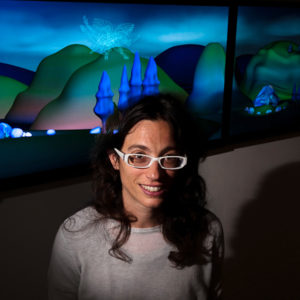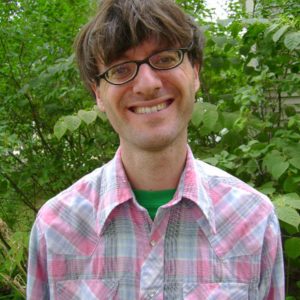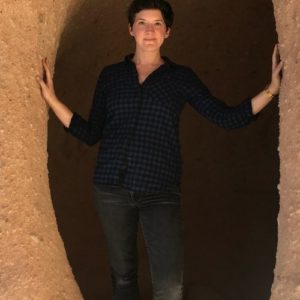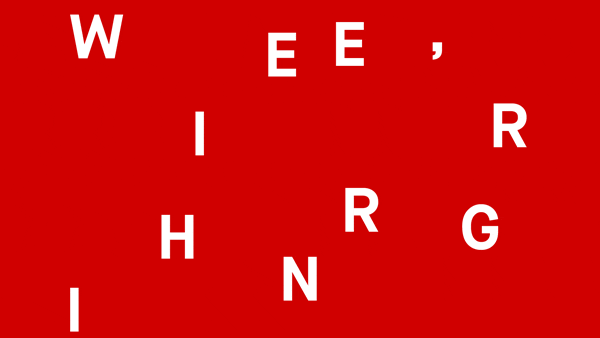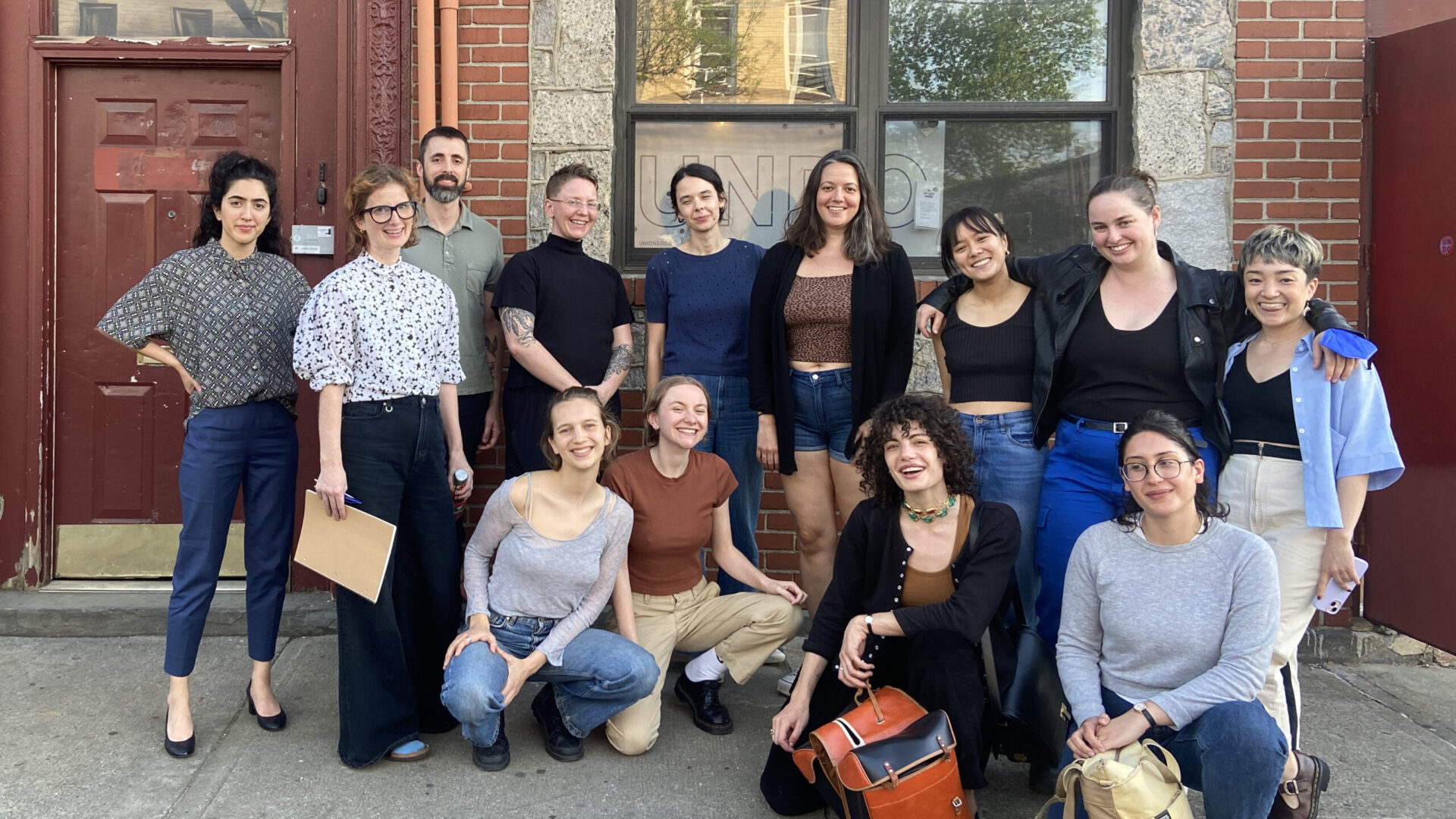Mar 14, 2019 at 7:30 pm
TAKE IT DOWN!
Screening to be followed by discussion with Sabine Gruffat and Bill Brown led by Sarah Christman
In this collection of recent work by North Carolina-based media artists Sabine Gruffat and Bill Brown, celluloid film serves as both a material register and critical resource for interrogating the documentary image. Whether using discontinuous montage, handmade techniques for creating and processing images, or dramatic re-enactors, these five short films aim to extend the formal possibilities of non-fiction filmmaking as Brown and Gruffat attempt to describe and decipher life in the American South.
We’re thrilled to have both Guffat and Brown in Conversation following the program.
Program
Framelines
10 min, 2017
Framelines is a scratch film for the 21st century made by laser etching abstract patterns on the film emulsion of negative and positive 35mm colour film. The result of the laser burning layers of emulsion produces a pixelated language of colours and textures only possible through this process. The strips of film were then re-photographed on top of each other as photograms. The soundtrack filters and layers the noise made by the laser etched optical track.
Working in the tradition of artists who have hacked or detoured technologies for creative purposes, Gruffat has discovered an entirely novel process for making moving images. The inventors of the laser cutter did not have filmmaking in mind as an application for their technology. In these waning days of analogue filmmaking, Gruffat’s film thus suggests an innovative approach to filmmaking and one possible future for materialist image-making in the digital era.
Amarillo Ramp
24 min, 2017
Perhaps best known for his monumental Utah earthwork, ‘Spiral Jetty,’ American sculptor Robert Smithson profoundly shaped how we understand landscape and land use. This experimental Super-16mm film documents Smithson’s final earthwork, ‘Amarillo Ramp,’ located in the Panhandle of northwest Texas.
Employing filmmaking strategies that are both responsive to the artwork’s environmental context and informed by Smithson’s own art-making strategies, Gruffat and Brown encounter Smithson’s Ramp as an index of the Anthropocene, (a term coined by ecologist Eugene Stoermer and atmospheric chemist Paul Crutzen to describe the current geological epoch marked by the unprecedented degree to which human behavior impacts the earth’s ecosystem.
Surrounded by the infrastructure of hydraulic fracturing (fracking), adjacent to a significant wind power transmission corridor, and set atop the rapidly depleting Ogallala Aquifer, Amarillo Ramp is an observatory where human interventions and land uses and human scales of space and time are set against geological and cosmic scales.
Life On The Mississippi
28 min, 2018
A short essay film about a river and the limited of knowing it. Using Mark Twain’s Life On The Mississippi as a road map, Brown travels from Memphis, Tennessee to New Orleans and considers ways that river pilots, paddlers, historical reenacts, and civil engineers attempt to know the river through modeling, measurement, and simulation.
XCTRY
6 min, 2018
A reworking of 16 mm footage shot during a cross-country road trip from Chicago to Las Vegas. The spatial discontinuities of the road trip are rendered as visual continuities across three frames.
Awarded Best Experimental Film at 2018 Eindhoven Film Festival (Netherlands) and 2018 Interference Festival (Gdansk, Poland). Selected to screen at 23rd Split Film Festival, 25th L’Alternativa Barcelona, and 22nd Traverse Vidéo Toulouse.
Take it Down
13 min, 2018
A last stand for the silent guardians of the old order. Take It Down is a filmic day of reckoning for the Old Confederate South. What is up must come down, like the Confederate soldier monuments standing in court house squares across the South. At long last, a grand inversion! Solarized film makes positives bleed into negatives. The South is renewed.
This film looks to North Carolina to describe the cultural fissure that runs through the South, a legacy of the Civil War. In the context of the divisive Trump presidency and the increasing visibility of white supremacist activism, these Confederate memorials have become sites of conflicting politics and historical narratives.
In 2015, Governor Nikki Haley took down the Confederate flag from the state capitol in South Carolina as a response to the Charleston church shooting. In retaliation, certain Southern states such as North Carolina passed bills to prevent Confederate memorials from being relocated, removed, concealed, obscured, or altered in any fashion.
After the 2017 inauguration of Donald Trump, white supremacists united around a Confederate monument in Charlottesville, Virginia in a violent show of strength. in the aftermath, there have been renewed calls across the American South to take down these Confederate monuments.
75 min
Sabine Gruffat is a media artist with a special interest in the social and political implications of media and technology. Her experimental and essay films explore how technology, globalization, urbanism, and capitalism affect human beings and the environment. These films seek to empower people, encourage social participation, and inspire political engagement. Gruffat is an Assoc. Professor of Digital Media in the Dept. of Art at the Univ. of North Carolina- Chapel Hill.
www.sabinegruffat.com
Bill Brown is a media artist interested in ways landscape is interpreted, appropriated, and reconfigured according to human desires, memories, and dreams. His research interests include haunted houses, memorial architecture, and outsider archaeology. He lives in North Carolina and is an Assoc. Professor of Media Production at UNC-Chapel Hill.
www.heybillbrown.com
Sarah Christman makes films that explore the intersections between people, technology and the natural world.
Her work has screened widely, including Rotterdam International Film Festival, Toronto Film Festival, New York Film Festival, MoMA Documentary Fortnight and the Los Angeles Film Forum. She received the New Visions Award from the San Francisco International Film Festival for her debut film Dear Bill Gates and Jury Awards from the Ann Arbor Film Festival for Broad Channel and As Above, So Below.
Christman received her MFA in Film & Media Arts from Temple University and her BA in Art History and Visual Arts from Oberlin College.
She teaches in the Film Department of Brooklyn College and the Feirstein Graduate School of Cinema / CUNY.


